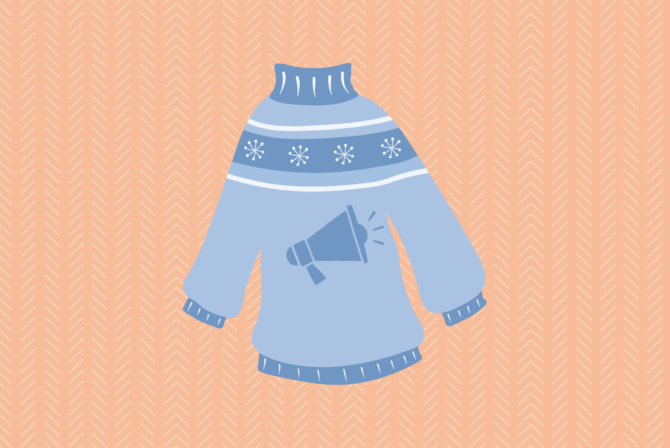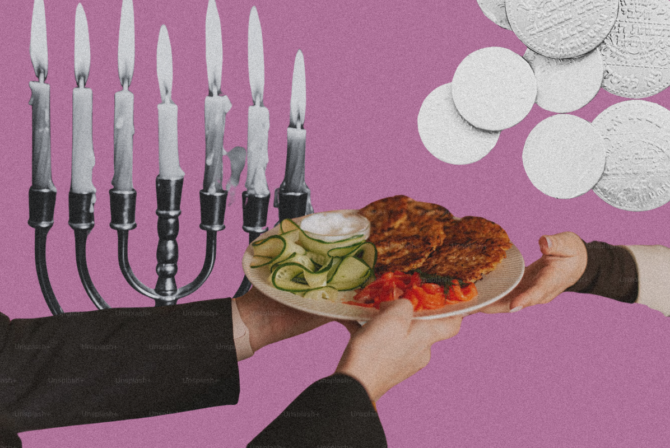This month, the Kveller Book Club read the novel
The Mothers
by Jennifer Gilmore.
The story centers on a couple’s distressing journey through the adoption process. In the novel, Gilmore tackles the concept of motherhood and takes a hard look at marriage, too. What’s more, Jennifer and her husband were experiencing the adoption process while she wrote the novel and she has written extensively about their own journey. The result is that this book is vividly felt, hugely informative, and ultimately relatable to anyone who has wanted something so much its threatened to consume them.
We were lucky that she found some time between promoting her book and caring for her baby to chat with us about The Mothers. And what’s more, tomorrow from 12-1 p.m. EST, we’ll be hosting a live Twitter chat with Jennifer Gilmore. Be sure to join us by using the hashtag #kvellerlit at tweeting questions to @jenwgilmore.
In an essay titled, “What is Motherness,” for The Huffington Post you talk about how when a baby is adopted, the parents are “the same.” Can you talk more about that?
When a couple adopts a child, gay or straight, they are arriving to that child in the same place. Only the birth mother has given birth. There is something wonderful about both parents coming to the child in the same way. [But] for a woman, largely due to the way motherhood is discussed and sanctioned in our culture, this can be troubling and confusing.
This idea of how a mother might set herself apart–and what the word “mother” means–are questions that Jesse, the main character in The Mothers, wonders about. She also wonders how her Jewish Ashkenazi heritage will be reflected in her child when she herself isn’t observant and especially if her child is of a different race and ethnicity entirely. How does one begin to figure this out?
Jesse is acutely aware of the lack of Judaism she is encountering in the world of adoption. Her husband is not Jewish–and they react differently to situations based on their different backgrounds and cultural experiences. But in adoption–whatever race or ethnicity or country of origin of the child, it is your responsibility as the parent to celebrate that. To not take away who and what that child is and where she comes from.
I thought a lot about this as well, of course. And those decisions are made for you really, by the baby who comes your way. In the end, this isn’t only a question of adoption, but how you and your spouse decide to raise your child based on your own experiences.
It was harrowing to read the parts of the novel where Jesse and Ramon experience an “emotional scam”–where a woman pretends to be a birth mother. When writing and living through experiences like these, did you try and understand what would motivate someone to “scam” an adoptive couple?
The scams that Jesse experiences are not necessarily my exact experiences. What IS the same is that birth mothers, when they are trying to do what’s best for their unborn child, are doing so out of love. And what is also the same is that those who are only posing as birthmothers take advantage of people who cannot have children. There is little that is more cruel than this. Jesse experiences a scam where she cannot understand why someone would do such a thing. But I understand that a lot of these women are disenfranchised. They don’t have a lot of power in their lives. There is a good deal of power that comes from having something that someday else wants desperately.
Were there aspects of writing this story that made you uncomfortable or took you a long while to write?
A lot of this story was uncomfortable to write. I usually write big, broad social novels, or books that take on several generations and show the effects of a changing world on that family. The link here is family–Jesse really really wants one. While I was going through my own experience (separate from my protagonist) it was difficult to enter her grief. It was difficult to write a book when I had no idea what the ending to the story or my story would be.
Do you feel you have become a spokesperson for adoption? Have adoptive families contacted you, after reading your writing, looking for connection and support?
I feel I was a poster child for adoption gone wrong. I wrote a good deal about many of the horrors my husband and I experienced and a lot of people who were trying to adopt or who had adopted responded. Everyone–truly–loves someone who is adopted or has adopted or has adoption in his or her life in some way. A lot of people contacted me. My story changed–we did bring home a child–but that doesn’t alter the harsh reality of what perspective adoptive parents go through. I wrote this book when I wrote it so I wouldn’t forget. Already my negative feelings have begun to fade, but what we went through is important to remember.
On that note, has there been any response to this story that surprised you?
Everything surprises me. What is most surprising is who has contacted me; you never know what people are going through. People might look happy and have good jobs and travel and so on, but a lot of people are in a lot of pain about being unable to find a way to have children. There is desperation in that because there is a time limit and frankly an emotional and a financial limit. For the most part, notes [from readers] have thanked me for putting into words what generally remains unspoken about the adoption process.
And finally, I have to ask: what about your child is making you kvell these days?
Everything about my child is making me kvell. He is in the laughing, smiling, playing stage of life. He wakes up smiling and reaching out to us. It is just sheer delight.
Jennifer Gilmore is the author Golden Country, a New York Times Notable Book of 2006 and Something Red, a New York Times Notable Book of 2010. She’s written for the Los Angeles Times, the New York Times Magazine, the New York Times Book Review, Vogue, SELF, Salon, and the Washington Post, among others. Jennifer teaches at Barnard College and Princeton University and she lives in Brooklyn.







